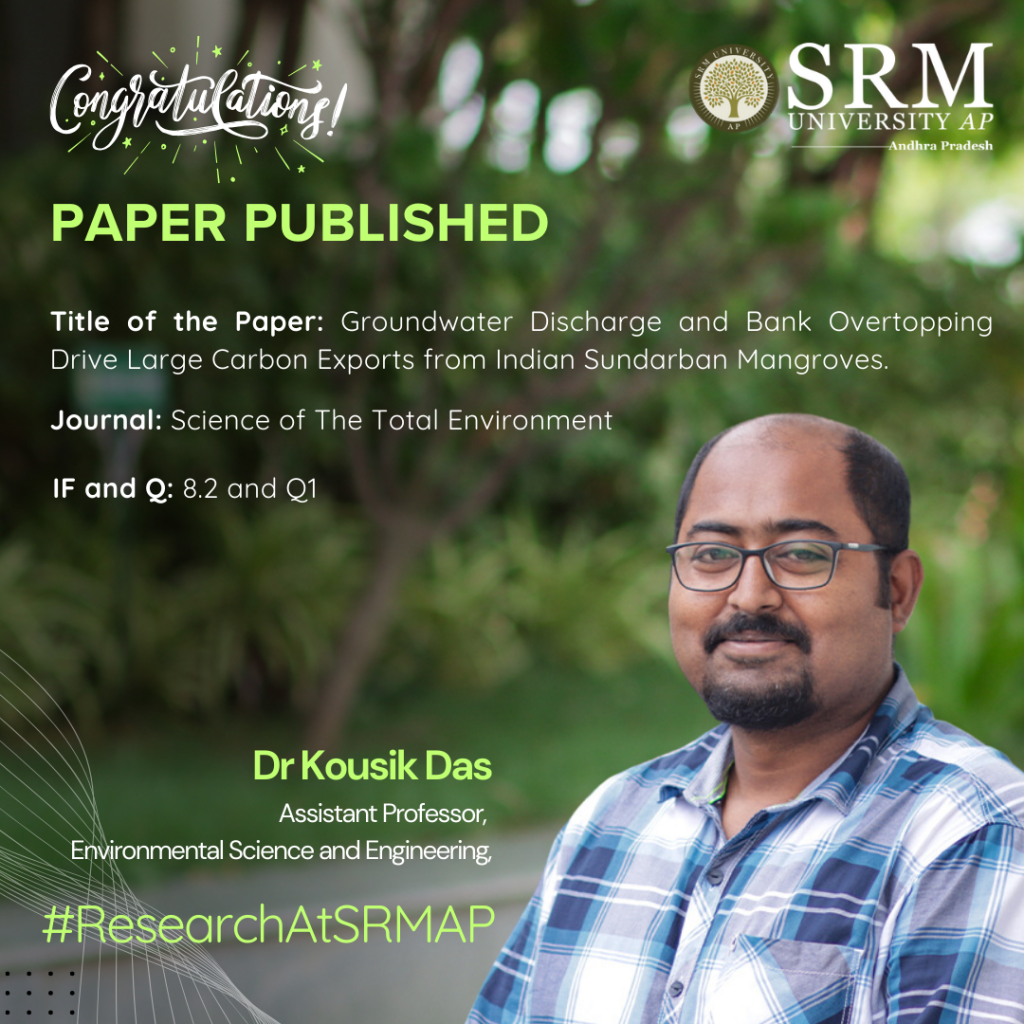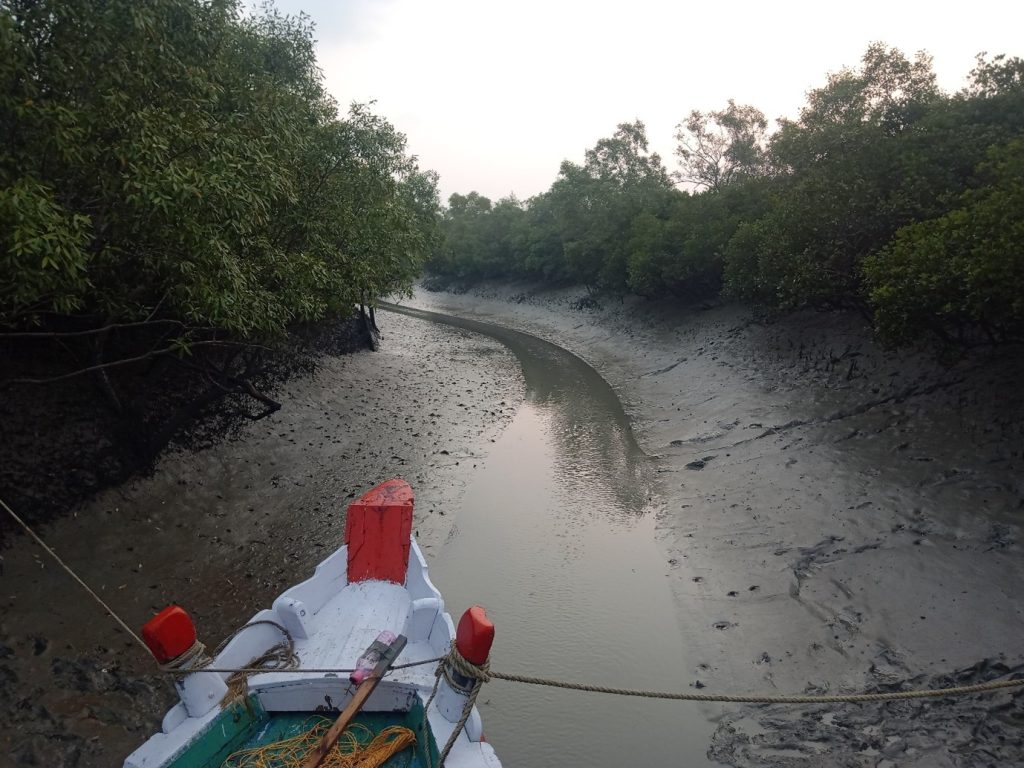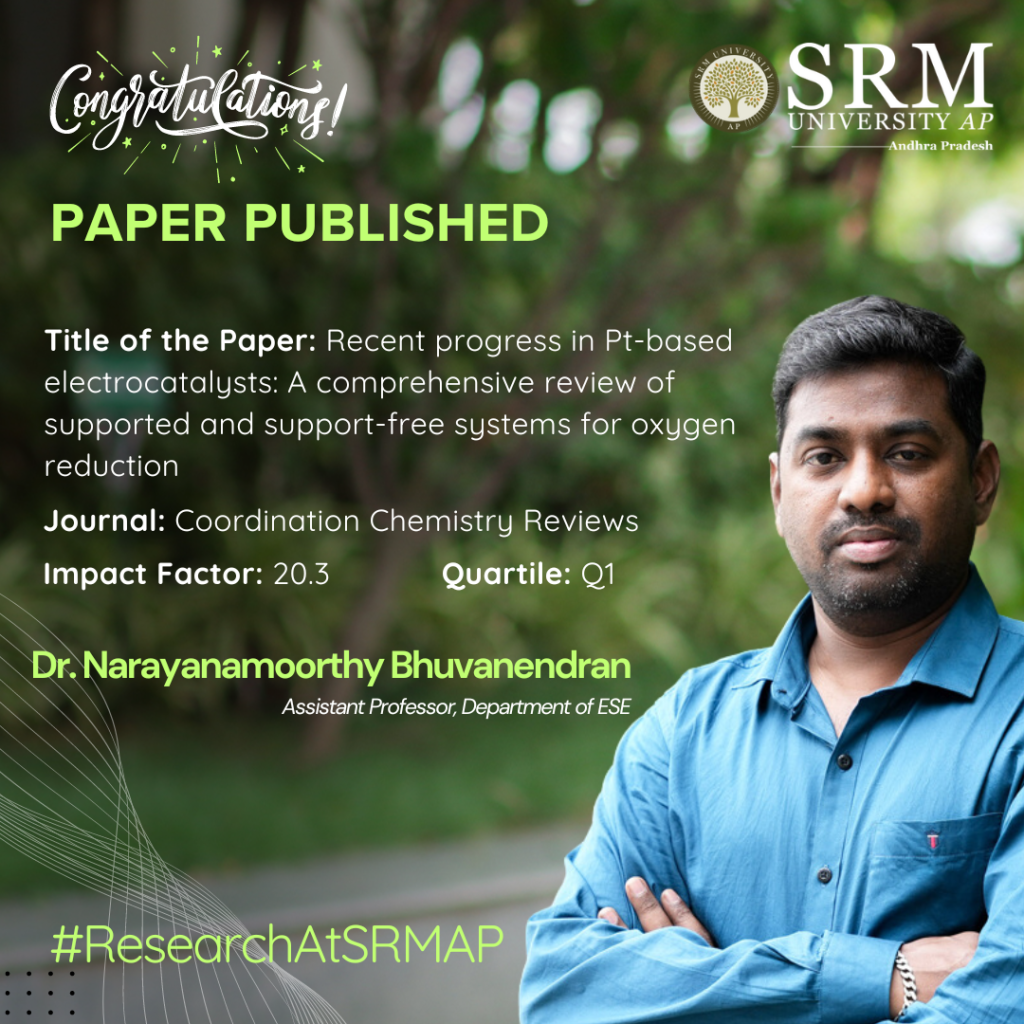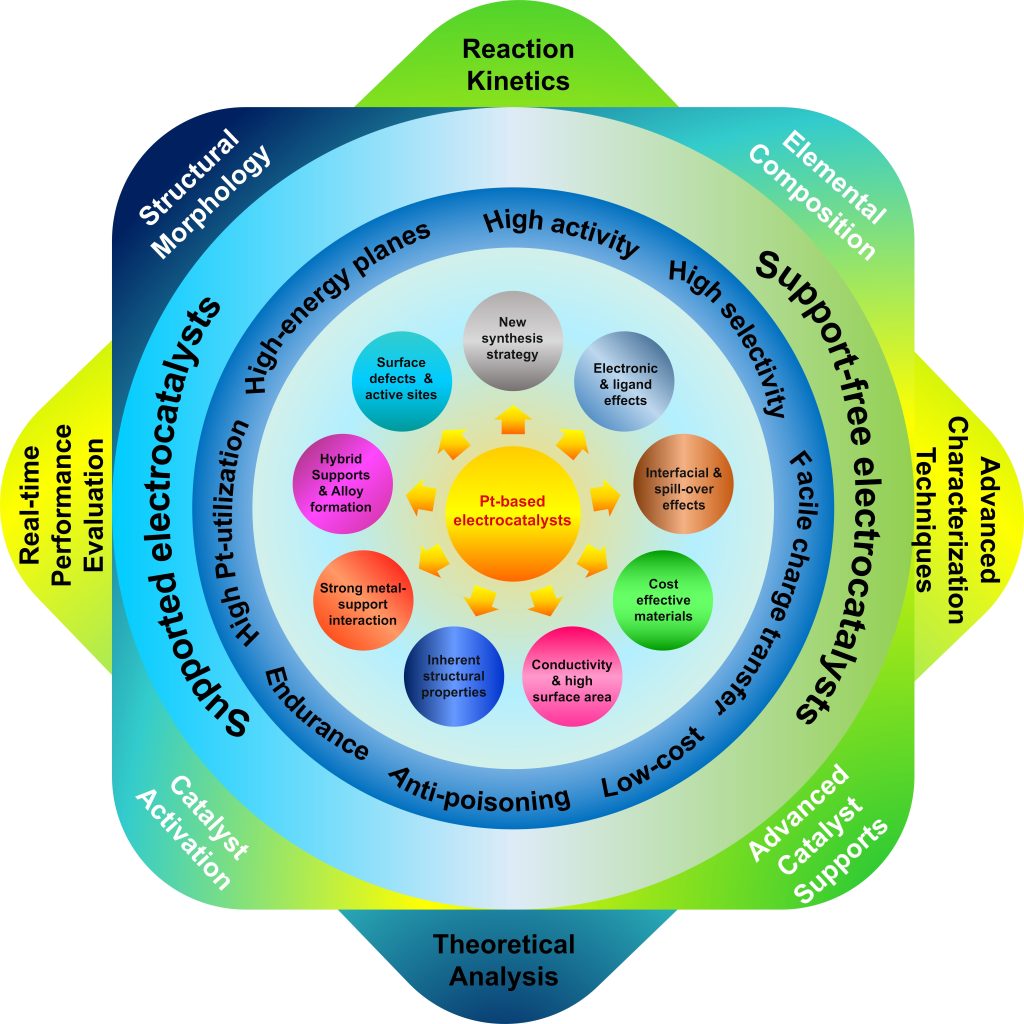Current Happenings ENVS News
- Understanding the Impact of Sundarbans Mangroves on Global Oceanic Carbon Budgets November 9, 2024

The Sundarbans represent the largest mangrove system on Earth, covering >10,000 km2. These mangroves can export a vast amount of aquatic carbon that can be potentially sequestered for millennia. Dr Kousik Das, Assistant Professor at the Department of Environmental Science and Engineering, collaborates with Southern Cross University, Australia and IIT Kharagpur to conduct breakthrough research to analyse and estimate the carbon flux between the Sunderbans and the Bay of Bengal. He has published a research paper titled “Groundwater discharge and bank overtopping drive large carbon exports from Indian Sundarban mangroves” in the Q1 journal Science of The Total Environment, having an impact factor of 8.2.
Abstract
We estimate porewater-driven carbon exchange between the Sundarbans and the Bay of Bengal using high-resolution time series and a radon groundwater mass balance approach spanning a neap-spring tidal cycle. Submarine groundwater discharge (SGD) increased from neap to spring tides by 352 % up to a maximum of 65.6 cm d−1 largely driven by creek bank overtopping after the mid-tide. Exports of dissolved organic and inorganic carbon and alkalinity doubled between neap and spring, likely due to the ‘first flush’ of older porewater in the mangrove flats. Groundwater discharge was a significant driver of the net carbon export, contributing up to 86.7 % of DIC and 74.0 % of alkalinity during the spring tide while contributing a lower proportion of DOC (4 %–23 %). If these results are representative of the Sundarbans more broadly, carbon fluxes from the Sundarbans would be more than an order of magnitude higher than some of the world’s largest rivers on an areal basis, highlighting the importance of Sundarbans mangroves to global oceanic carbon budgets.
Practical Implementation/Social Implications of the Research
This study shows the global importance of the Sundarbans mangrove system, with significant dissolved inorganic carbon and total alkalinity fluxes to the Bay of Bengal. It also shows that mangrove SGD is an important driver of dissolved inorganic carbon, dissolved inorganic carbon (DIC) and total alkalinity (TAlk) exports and that bank overtopping during mid and spring tides drives a ‘first flush’ of carbon from groundwater. When carbon fluxes from the study site were upscaled to the entire inundated area of the Sundarbans, DIC and TAlk exports were smaller than some of the world’s largest rivers, however when adjusted to the catchment size (assuming the Sundarbans mangrove catchment area is the extent of the mangroves; 10,200 km2), the areal carbon fluxes from the mangroves are more than an order of magnitude higher than these river systems
Dr Das aims to continue his research and further explore the large flux of carbon export due to tropical cyclones from the Indian Sundarbans to the Bay of Bengal.
Continue reading →
- Dr Narayanamoorthy’s Review on Pt-based Electrocatalysts Features in Elsevier Journal of IF 20.8 October 9, 2024

With the rising frequency of climate crises and to address growing energy demands and environmental concerns, a shift from conventional fossil fuels to sustainable alternatives is essential. As Hydrogen fuel cells are a viable and sustainable alternative to conventional fossil fuels, various research is being conducted in maximising the efficiency of fuel cells.
Dr Narayanamoorthy Bhuvanendran, Assistant Professor from the Department of Environmental Science and Engineering, works extensively in this field and has recently reviewed the advancements in Pt-based electrocatalysts that can reduce the Oxygen reduction rate (ORR) in Hydrogen fuel cells in his research paper. The paper titled “Recent progress in Pt-based electrocatalysts: A comprehensive review of supported and support-free systems for oxygen reduction” was published in the Q1 journal Coordination Chemistry Reviews with an impact factor of 20.8.
Abstract
Recent advancements in Pt-based catalysts for the oxygen reduction reaction (ORR) have improved energy conversion efficiency in fuel cells and metal-air batteries. However, balancing electrocatalyst activity and stability remains challenging. Due to Pt’s high cost and limited availability, research focuses on Pt alloys, hybrid catalysts, and nanostructured materials to enhance catalytic performance using cost-effective methods. Hybridising Pt with other active components offers synergistic effects and aligns with the U.S. Department of Energy’s 2025 targets. This review examines recent developments in supported and support-free Pt-based electrocatalysts, highlighting carbon, inorganic, and hybrid support materials, as well as support-free metal nanostructures, for superior ORR performance in energy applications.
Explanation of the Research in Layperson’s Terms
Hydrogen, with its abundance and eco-friendly properties, is a promising fuel for sustainable energy systems, powering vehicles like electric cars and buses through efficient energy conversion devices such as fuel cells. While fuel cells effectively convert hydrogen into electricity, further advancements in electrocatalysts and cost-efficiency are needed to make this technology commercially viable. The oxygen reduction reaction (ORR) in fuel cell cathodes requires efficient catalysts for better performance. Pt is the top ORR catalyst for low-temperature fuel cells due to its ability to break O-O bonds efficiently. However, issues like Pt nanoparticle dissolution, surface impurities, and structural changes during reactions limit its effectiveness. This review explores improving electrocatalysts by increasing active sites, boosting metal-support interaction, and enhancing stability for better performance.
Practical Implementation/ Social Implications of the Research
Several challenges remain in scaling Pt-based electrocatalysts for oxygen reduction reaction (ORR), particularly around cost, performance, and environmental impact. Platinum’s high cost and scarcity drive up production costs, and synthesis methods are complex and hard to scale. Catalyst durability also degrades over time in industrial conditions. Efforts are focused on developing green synthesis methods, recovering platinum from used catalysts, and exploring alternatives like atomic layer deposition to reduce Pt usage while enhancing efficiency. New nanostructures, such as 2D layers and hybrid materials, could balance performance and cost. Future research aims to meet the U.S. Department of Energy’s 2025 targets for improved performance and durability, essential for advancing Pt-based electrocatalysts and enabling widespread fuel cell adoption.
Collaborations
- Prof. Huaneng Su, Institute for Energy Research, Jiangsu University, Zhenjiang, China
- Prof. Sae Youn Lee, Department of Energy and Materials Engineering, Dongguk University, Seoul, Republic of Korea
- Dr Srinivasan Arthanari, Research Professor, Chungnam National University (CNU), Daejeon, Korea
- Dr Sabariswaran Kandasamy, Assistant Professor, Department of Biotechnology, PSGR Krishnammal College for Women, Coimbatore, India
Dr Narayanamoorthy will continue to work in this domain, developing novel nanostructured hybrid electrocatalysts for energy and environmental applications.
Continue reading →

